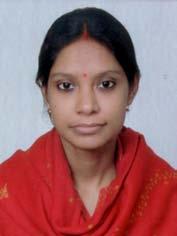Specializations
1. Economics
Indian economy is currently experiencing major changes in the production structure. Our service sector, especially the modern services, has started expanding at a much earlier stage of development compared to the developed countries. Another aspect of this changing structure of production is the disproportional nature of the growth of the service sector considered in terms of its output and employment shares. Two of the major concerns associated with these patterns of structural changes in the production and employment fronts in India are: sustainability of growth of the economy (without a balanced growth process in each sector) and disproportional growth in terms of output and employment which might enhance the problem of unemployment and inequality, leading to increased social unrest. Therefore, unidirectional growth that ignores its impact on the entire society might be a matter of serious concern in the long run.
We can be firm that the ultimate objective of growth of any economy should be an equitable and sustainable development. On this background, our research is focused on studying development issues and the problems related to the growth of the developing countries, especially India.
Faculty Members
- Dr. Amrita Roy
A research in philosophy highlights the importance of ‘what should be’. Philosophical research always focuses on critical analysis. It further engages with the probing into the basic assumptions, concept elucidations, synthesis of views, justification of normative assumptions and prescriptions. Philosophical research aims towards achieving semantic clarity and meaningfulness, consistency and rigour of thought, consciousness of assumptions and methodological awareness.
Faculty Members
- Dr. Anoop George
3. Linguistics
In recent years, Linguistics has increasingly drawn the attention of researchers in a wide range of subject areas because of its interdisciplinary nature. While linguists have begun working together with computer scientists to make Artificial Intelligence more effective viz a viz speech technology and machine learning, they have also been working along side those in medicine as well as electrical engineers to understand language in the brain. Linguists have also been engaging in cross-disciplinary research with anthropologists and educationists to assess the effect of social factors on language use, maintenance and extinction , the influence of language(s) on the communities that use them and the teaching, learning and attitudes to languages in educational institutions.
Faculty Members
-
Dr. Reenu Punnoose
4. English/ Gender Studies
English, especially in the past few decades, has transformed itself from being the discipline to study English language and literature to a plane for interdisciplinary research where a wide range of questions relating to language, nation, culture, society, gender, politics, identity and so on are addressed both at the global and local levels. The advent of culture studies, postcolonial studies and translational studies (particularly the study of regional literature, culture and politics), which mark certain significant moments in this history of transformation, has also helped the discipline to widen its horizons and break its stringent disciplinary boundaries. English as a stream within the department of Humanities and Social Sciences at Indian Institute of Technology Palakkad is keen on taking into its purview a wide range of research from literary to culture and gender studies and wishes to contribute towards widening the horizon of the discipline further via an active interaction with other disciplines both within the department and in the institute.
Faculty Members
- Dr. Sujatha G.






